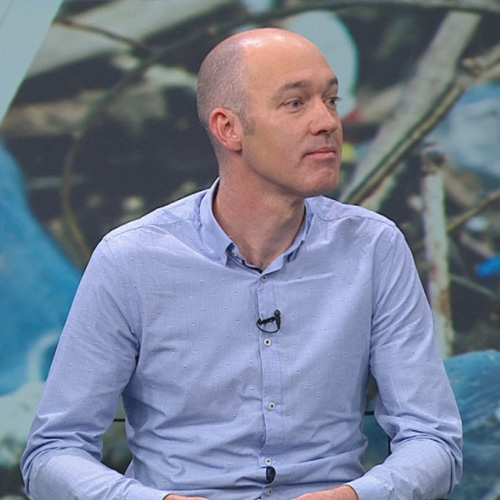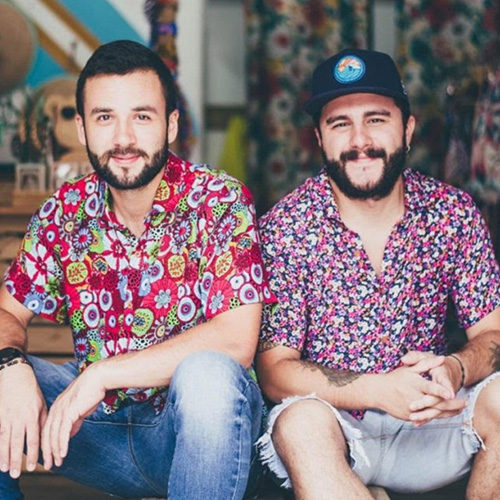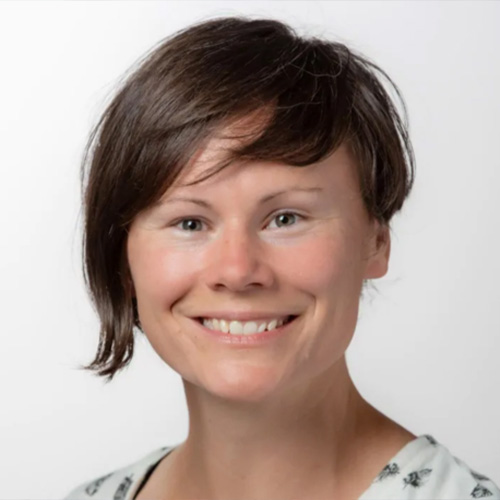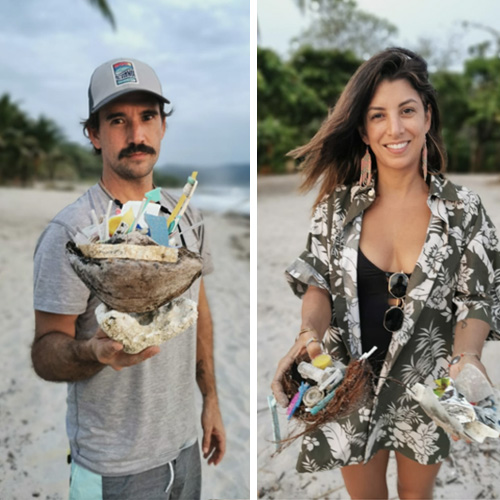
The adaPETation® network talks with social entrepreneur Siddharth Hande, founder of Kabadiwalla Connect, on tackling plastic pollution in Chennai, India and how to optimize waste management networks with data.
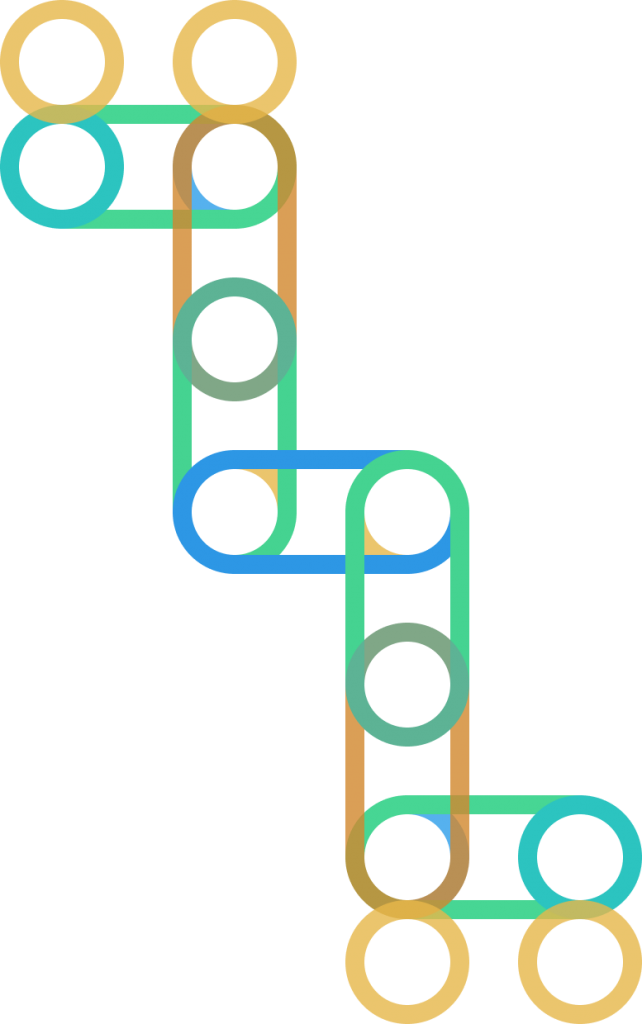
Social entrepreneur, Siddharth Hande, is a development sector specialist based in Chennai, India. As a geographic information system expert, experienced in delivering high-quality data-driven research he has held leadership roles in varied projects related to Urban governance, sustainability and the environment.
As the founder and current CEO of Kabadiwalla Connect, an award winning social enterprise in the field of waste management, he has focused on developing scalable and inclusive solutions to the collection, aggregation and processing of post-consumer waste in cities in the developing world.
He hopes to be able to articulate a cheaper and more inclusive approach for cities in the Global South to apply circular economy principles — by leveraging the informal waste ecosystem.
As a consequence of his innovative work in Chennai he has been invited to map waste management systems in other cities facing similar problems and that’s why he’s been nominated as one of adaPETation’s PET Heroes for 2024.
Five Minutes with Siddarth Hande
Perhaps you could start with just giving us a bit of a breakdown on what problem your team is solving?
Happy to do that. So I live in India. I live in Chennai which is a city in South India, the sixth largest city. We have about eight million people and in my city and most Indian cities, you know here we have a big kind of issue with waste management. It’s kind of one of the key issues that we need to solve. What’s in crisis right now is how do we do our waste collection and how do we organize our waste collection right now? It’s all landfill, it’s very expensive to do, but there’s really a big issue around that, and so one of the one of the kind, one of the big points of this is plastic waste gets generated. It’s one of the fractions that’s mishandled, and so we try. We try to kind of focus on this issue of how do you reduce this waste that’s going to our landfills, but also how do you create a circular economy for municipal waste? And we really focus on doing that by integrating the informal supply chain into this, you know, as a solution we provide.
Could you give us some of the contents of how we arrived at this point?
Historically you know cities in the developing world really kind of look at, like you know, like you know, like when you look at the waste collection systems in Europe and in the US, they’re very centralized and they kind of work where there’s more money. But when you apply the same kind of collection philosophy and the developing world it’s very expensive. So typically, historically, a lot of municipal waste collection programs have not been sustainable by themselves. You know it’s been something that they’ve got some. You know, raised some development finance like money for and things like that. And you know we’re getting to a point where people are just happy to see their streets being cleaned. You know, and even that’s not a 100% but what we do with the material is really in crisis, and so for the longest time there’s always been a lot of recyclable waste in the ways that we generate and put into the dumps, you know in the bins and things like that, and so because of the value of those recyclable materials, you have this informal supply chain of people kind of collecting that at a city level, like when we mapped in China. We do this kind of first ever, like kind of census of the informal supply chain, which means we walked every street, every time we found a strap, she would map them, we put them in a supply chain philosophy and we found that they were collecting like there were 2,000 waste pickers and 500 stakeholders or like aggregators, who were collecting something like between a 100 and 30,000 tons of recyclable waste every year. That’s about 25% of what the city generates, about 20,000 tons of plastic. Absolutely informal in the traditional sense. For example, they do not pay tax or things like that but they are really also prevalent and kind of required in the recycling supply chain in Chennai. We all know the waste pickers are the key stakeholder who’s actually scavenging, choosing between the health and livelihood to collect material on-the-ground but then we actually don’t speak very much about the aggregators and the role they play to actually funnel large volumes from from the city and I think this kind of perspective is really key to the integration of waste pickers into the waste management system.
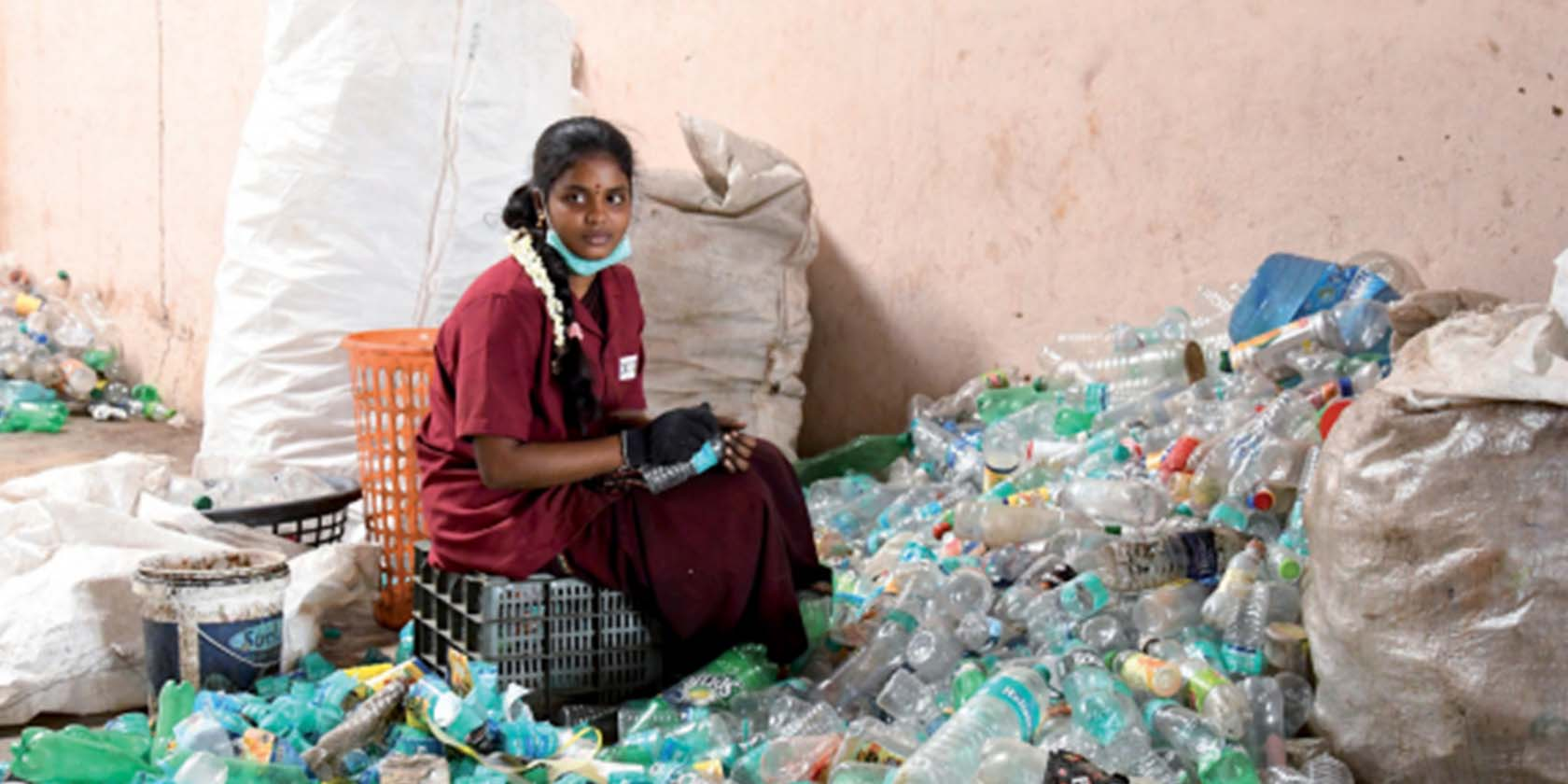
So what was the lightbulb moment for Kabadiwalla Connect?
When I was doing my undergrad I was studying zoology in China and we have an amazing beach and so we used to kind of organize these beach cleanups every weekend because we would hang out a lot there and you know like plastic was just getting dumped on the beach coming from, you know, like crazy places like so we got really into the question about waste. Then we took it to the next level, from a clean up we went to doing these waste audits, to try to understand what kind of waste is this And it was there that I saw kind of waste because like really scouting for specific times of material and you know my lived experience was that they were taking that to go and sell to the scrap shop. And so then when I did a masters in environment and sustainability, I did a lot of reading there and I really noticed that these aggregators were, you know, kind of like, like not well represented in the literature. So actually the goal of mapping my hometown, all the aggregators in my hometown, really started as an academic project. I was like you if I collected this data and you know and actually wrote a big paper in it, this could be the focus of my, etcetera, etcetera. But it turned out that when we mapped it, just like looking at a map, you know it started looking like infrastructure. For me you know and like a thing I love to do is actually show a map of the Kabarole, the scrap shops that we mapped in Chennai, and say I could be showing you a map of the number of vegetable shops in this city. You know you don’t have to look three streets or more to find, like a guy who can go to a drop-off recycling base. This is really a unique decentralized collection system that is being developed, you know, and they’re quite material agnostic so it’s about you working with them and saying, hey, I can give you, you know, a long term agreement if we work to get this material. You know there’s this waste bank philosophy and so these guys really fit into that kind of philosophy. So it’s basically that was the light bulb moment where I said: okay, you know what. If we build a company that works towards integrating the supply chain, we’re working in a space that is dealing with large volumes so it will attract really large players and, like serious customers with serious problems. You know, for example, there are those that have the technology to build a 10,000 tonnes a year plant but if something messes with my continuous supply of feedstock they can’t set up the plant. You know, in Europe, you traditionally go to the municipality to fulfill your feedstock demands. And so there’s a scenario where you can’t do that and so more and more recyclers are being more pragmatic, saying that we have to work with the informal sector and kind of come to us to be like. How do we tackle this problem? So that journey has been really exciting.
What are the obstacles that you currently face?
I think maybe I can put it this way. Our short and medium-term strategy is to work with recyclers. We are really looking to set up plants that can procure plastic because really in the time that we set up in 2016 and was kind of almost like a kind of deadline, waste management, waste collection. It’s a public service. The municipality should pay. The municipality is kind of hamstrung in giving out a certain kind of tender that prioritizes landfilling but doesn’t have a good alternative on the collection side because things are too expensive. So there’s kind of been a deadlock when we first came in and so even from, you know, I guess at that time we were also doing a lot of research. So there’s always interest and understanding that space. But I think then the plastic movement was big. Like you, I’m thinking about the National Geographic kind of coverage. You know where you saw this plastic Ellen Macarthur Foundation, kind of like comments that there’ll be more plastic in the ocean than fish and really building like a public consciousness. I think that has really spurred big brands, plastic producers, really everybody like you know. The plastic and oil are extremely interconnected and so it’s really like getting a lot of people to look at how to solve this problem? When pragmatism comes in like okay, I have to set up. How do we do this then? The informal supply chain is like going to use the solution. I think that there are challenges on traditionally how waste management has been financed, operated and things like that and these big issues that have to be solved at the municipality level. But then there’s also now, like you know, there’s this amazing example of actually in India. When we did this study, the administrative areas around are two major rivers in Chennai and we looked at from secondary research how much plastic they were generating recently. So you know, there’s like this group of, let’s say, a hundred thousand people are generating. When we took the scrap crops in these wards and we looked at how much pet they were collecting. In one section it was close to 100%, in the other it was a little over 100% and like for me, that kind of collection rate. I really attribute the fact that there were these two formal, two or three really big formal recyclers who are making PET textiles. They were set up a while ago, like you could say 15 and 20 years ago, and the demand from these factories have been so consistent that the informal sector has almost sucked up 100% of PET. Now of course, the way they collect it is problematic, right there is this idea of health and safety, etcetera but when you show these big companies who have serious demands for reliable feedstock or their investment is going to fail, they put that pragmatic hat on. So therefore for plastic recycling that is the big driver. You could say that we met this challenge of, you know, the age-old question of like who’s going to pay for this? How is this going to be run?
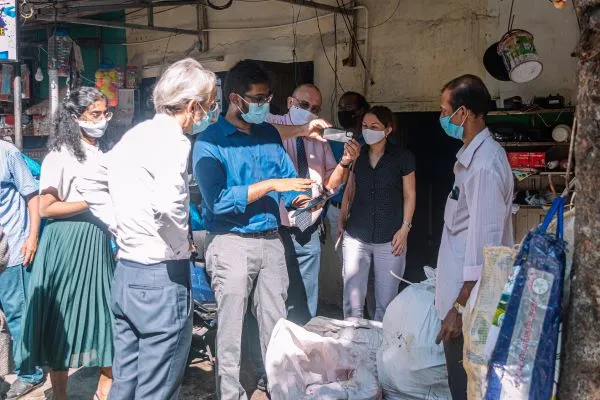
Did you say 100%. That’s remarkable. How do you measure that?
So our philosophy is really brute force, like location data and running. It’s kind of a long questionnaire to understand the scrap shop and their business. So typically you know again, like they deal with large volumes at micro system-level but they’re kind of organized in two types of scrap shop. You have what we call kind of level one aggregators, who you’re kind of retail focus, scrap shops. They are the folks whose main feedstock is coming from waste pickers and local residents and small commercial establishments and things like that. And in Chennai we found about 2,000 of them. And then you have these kinds of informal material recovery facilities, you know, clustered in the suburban areas, like really focusing on one type of material. So on average you know that the level one aggregator scrap shop size is about 100 and 50 square feet, whereas on average the level two is about 5,000 square feet. So it’s like a warehouse. You know what I mean. And these level two are critical because they do the preprocessing needed to kind of get that material to the recycler and the volumes that the recycler needs. So they would, for example, and then that would go large distances. So it’s kind of. I think for us the whole point is when you think of how these guys can be integrated, it’s it’s kind of network when you see the data.
We go in and we run these interviews, basically. So once we mapped them, we walked the streets, we found a scrap shop and we had a questionnaire. So this question followed a rigorous, like academic discipline, like during the grad days. So this survey was funded first by the World Economic Forum and then, like, like with the World Bank. The World Bank can put some money into this global partnership for sustainable development data. And so we really built our question through this process. It’s people answering our questions, but then you’re getting so many responses that you’re able to kind of pull out the kind of odd points, etcetera, etcetera, to get to the answer. You know. So I’m not saying with 100% accuracy that there’s a 100% being collected, but you can definitely say like we’ve interviewed every single scrap shop in that ward, let’s say there’s like ward and there’s 12 scrap shops in there. Each one of us has given a response: of how much are they buying? You know what I mean and what is the price and things like that. So it’s essentially market research with a philosophy. You know how you speak to the guy? How do you ask him questions, etcetera, and then using that data to aggregate it at that word level and say: How much are you saying that you’re collecting every month and then you have a secondary question such as how much are you generating? So you’ve got to take it with a pinch of salt, but like it’s like when you look at it at a very high level, like percentile, for example, right like collection, and I would attribute this because of the big recyclers. Giving that continuous demand and there’s a stable price is like you know, like like it’s that it’s at the fourth, the fourth quarter, it’s like at that highest level, it’s anywhere between 80% and 100% or nothing less than that, whereas when you look at low value plastic it’s in like the first percent, it’s like 20% and 25% and I can look and see the landscape responding to now setting up big plants and things like that. You know what I mean, so it’s basically stakeholder interviews is how we collect the data.
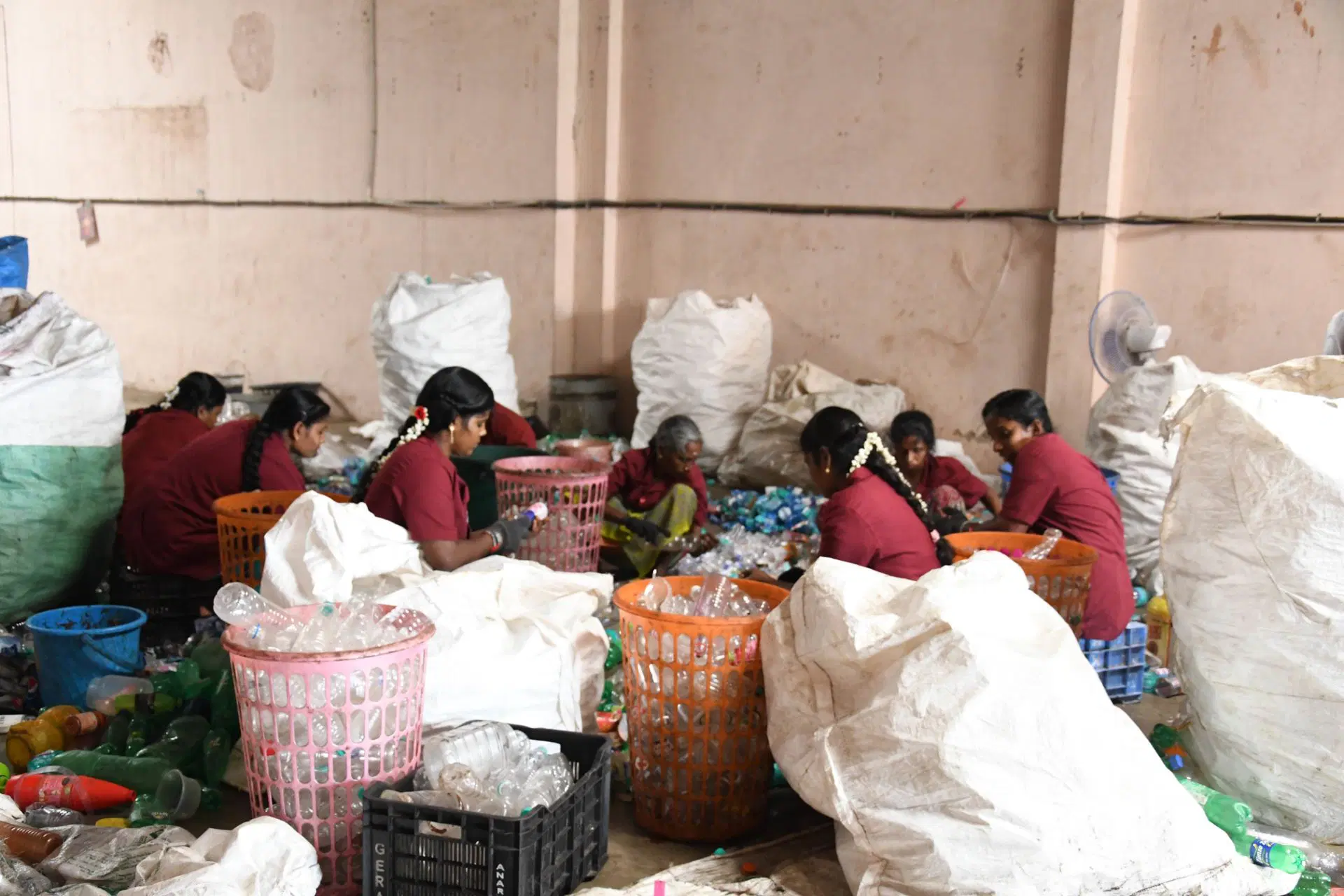
What would you say are the obstacles or challenges that you currently face in being able to scale your impact or offer your solution at scale?
As a social enterprise, one of our key missions is to get the waste picker out of having to choose between their health and livelihood by putting their hands into a bin and scavenging really for material. So we have a hypothesis that if you were to use these small scrap shops and their waste pickers to organize last mile waste collection directly from households, that’s a great way to kind of build a simple, dignified collection system, but also a way to bring down the cost per ton of collection. You can work with multiple actors to organize a collection of smaller streets, like in Chennai, for example. We actually had an amazing example of that called Nora. It was very active in, like, I think, the nineties when I was a kid and then, basically like the kind of they, they had a subscription model, they had recycling model, it was really all the organic ways was taken away and it was run like you know they. They were like groups that would set up, like for every five streets and then streets and things like that, and they were really successful, people would subscribe to them but then you know the municipality put in this like you don’t have to pay anything like now, big trucks are going to come just put your waste on this, you know, in this big, in this big bin and then forget about it. So I think for us the biggest hindrance of our work is like every time, like a municipality getting into a long term contract, that does not push a more circular economy narrative then the informal supply chain takes a hit because these are long term contracts, etcetera, etcetera. I think for us we try to actively engage in policy and say: you know we should really think about involving these guys in collection and we have a video on our website. Actually that kind of talk about it. We have this. We’ve been running this pilot at a very low-tech readiness level, where we’re working with one scrap shop in two ways, because we’ve been doing this kind of collection service for like four years now. That’s the good part, but we’re kind of just servicing plastic collection from 600 households and we’re paying the wages for those collecting they are getting paid like a salaried wage. You know you can change some of the dynamics. So for us what we would ideally see is people coming together to agree on a method of collection that’s more decentralized and extremely inclusive of the scrap shops and waste pickers, because they should get first class being a part of that collection service. You know what I mean, and then we would completely reimagine, like how collection happens in big cities in the global South and maybe that’s a circular economy model that for waste collection that cities in the global south need to look at more seriously, and that would be our ideal mission if we can, if we can get somewhere with that.
In terms of just giving us an idea, can you talk about the numbers, how many people does your solution incorporate and how is that growing, or how is the impact that you’re having growing?
So the biggest kind of commercial project in terms of procurement that we’re currently working on is that we’re currently being incubated by this technology incubator called Shell Game Changer. It’s Shell, the oil and gas company. They have kind of a very old tech incubator that was set up in the nineties, that really looks at innovative technologies that can kind of support Shell’s business functions. Shell is an interesting company because they have made a commitment or an ambition that they want to recycle one million tons of plastic waste annually by 2025. And the way they’re doing it is actually, and this is like public news, they’ve they’ve kind of bought the license for this pyrolysis plant called Blue Alps Technology and so that that that basically is a chemical recycling thing where you you take low value plastic, something that’s not being collected in India currently and it’s a huge requirement in the developing world. You take that material and you make it back into base, that can go back into like Shell’s refineries and you know they kind of like clear, you know it just gets pushed back in. It’s a really ambitious idea and so they’re at a point where they’re just, you know, they’re commercial. Their first commercial test of this technology is in the Netherlands and it’s 10,000 tons a year and they’ve been running it for some time now. It’s about taking that and putting it into Malaysia, different geographies, so like we’re working with them now through gamechanger and we’re doing like 100 ton tests. So really, when I look at, like in terms of how much ambition we kind of want to have in the long term, it really ties down to getting a procurement contract like that and we’re talking. We’re working really with this kind of ecosystem like Shell is fascinating in this way because even from an agricultural waste perspective they’ve built something like this really really fascinating. There are companies out there like this who do similar work. As a great example we had kind of when we worked in Indonesia. We did a similar kind of a 100 ton test on traceability, and so we have a video of that on our website, we can kind of look and take a look at how we approach it. So again, like you know, for us impact right now I would say the major impact we’re having is communicating how the supply chain looks. I think I still think that that’s what I’m proud of. The fact that I’m trying to come out and say: look, evidence is showing us in most cities now because we’re mapping in different cities like that. There is this level zero. Who are the waist pickers? Level one? Who are these retail focus scrap shops and level two or your informal material recovery facilities. But the kind of impact I would like to see is going beyond, let’s say, a 100 ton collection which would maybe improve the livelihoods of 25 scrap shops and one and two tours in the short-term a couple of years or something like that, you know. So it’s more about if I feel if I can secure a long term contract, 1,000 tons a year for the next eight years, then you know there is something long term in the impact kind of space that we can make, because otherwise right now it’s just a lot of testing.
How are they backing you, investing financial resources? And you know what else do they? Whatever support you get from and also wanted? How have you incorporated systems thinking into your work in this field?
With Shell, the main thing is we’re in the accelerator program, you know, and so as part of this we get access to a lot of kinds of leadership in the business units. But we also get access to grant capital to build our product to a higher readiness level and things like that. So Shell is a very interesting space. I think they’re creating a lot of impact, like plastic waste, especially to deal with plastics. I think they’re extremely serious about that, and so for us we really hope that you know we build a relationship through this program that we can work with. You know, work on the procurement aspects. We are testing some stuff which is super exciting. The second question is systems thinking. I think for me as a data scientist I’ve always liked to come with evidence like you know it’s kind of like in that you know your job is to kind of like go and collect as much information as you can to create, like a model of like, what’s happening. And I think that for me you know, when you come to that light bulb moment, when I saw how this ecosystem functions and I saw that gap in understanding how this supply chain functions. I think that there’s so much work to be done over there. You know, and it’s been a nice journey because even though we’re a very small company just doing proof of concept stuff, I think that you know I’m part of the Federation of Indian Chambers of Commerce. You know they have a circular economy committee. I’m part of the Planning Commission committee on solid waste management and circular economy. So I think that you know there’s two kinds of things. Somebody told me this a while ago, which I like, there’s like scaling and spreading. I think we are yet to scale. We are still very much strata oriented and like doing proof of concept that it can work. But I think the idea of thinking about the informal recycling chain in the Global South as infrastructure. I think that message is spreading and for me that makes me feel good basically that this message is going out there. It’s dealing with this idea coming to fruition at a time when there are some very pragmatic commercial folks looking at supply chain stuff. You know, and I think that that’s really exciting and that could lead to a lot of change.
What makes you optimistic that we can put these very different systems – European plastic production and chemical recycling plants and countries fighting pollution with non-existent waste management facilities in the global south – back into balance at a global scale?
I mean again from my neck in the woods I believe, a lot in science. You know when we look at the scientific evidence and the narrative that was driving the global conversation around plastic pollution, I think that really was a huge thing and can create a huge impact. There’s a lot of folks globally really focusing on pollution evidence and the fact that pollution is killing people and that narrative. And I think that that is really really key for us because I feel like in the global south we tend to normalize pollution. It’s like laid on us in our faces and things like that, especially when it comes to waste management. But that’s not necessarily going to be the case in the future and I think the private sector, if you’re in India we are going to be the third biggest economy in the world is what everybody’s saying soon and so there’s this huge rise in consumption class, there’s a lot of innovation, there’s a lot of businesses coming in to address the problem. This is an amazing thing and waste management is a great thing to come together, to build community as well. So, all of these things, I feel there’s a moment and I hope that this moment continues. That makes me positive.
Looking at this from an Indian perspective, what other worldviews do you think could inform a wise response to some of the challenges we face at a global level?
I’m a big believer in decentralization of this particular activity of waste collection. I also believe that if I collect enough data and I give it to some guy who’s doing an agent-based model, you could prove it through different modeling activities that the cost reduces. If you have more hands and shorter distances, you know doing higher levels of aggregation I think that this kind of thing just blows my mind because it actually gives us, countries and cities like us, with all our problems, it gives us something to be excited about. Actually I feel like there’s a million other things like this. We have a long history of circular economy and traditions. I think that there’s all these stories where India can come in and really innovate on how you build a circular economy because there’s so much of that historically and I think you know you take the kind of feeling that we have in this recycling supply chain. Maybe it maps the coffee supply chain, maybe we map more middlemen and we really look at them. You know a lot of people villainize middlemen, but really from a supply chain theory perspective, if somebody’s adding value, that’s an important note in that supply chain. So I think there’s so much, there’s so much stuff here that can be used and kind of translated at a global level. So maybe India can come in and say: guys, look at what’s happening here and how do we as a country support that but then how do we also export that idea to different places and that would be really interesting.
Thank you so much, Siddarth. One final question. What would you do with €10,000 of non-dilutive funding if you were to win the PET Heroes 2024 prize?
We have a project that we’re launching soon. It’s kind of a new channel, and is very much like our innovation hub. You know this is where we’re from so we try to do a lot of our testing here. So one thing that we’re launching fairly soon is an app that connects households to their closest scrap shop that we’ve gone and kind of like, make sure, is like one that’s already dealing with residential people and so so basically kind of vetted in some way and we’re trying to get more material into this into this supply chain. So we’re launching that up and this could go into the development of that. We’re just really happy to be nominated.
JOIN THE MOVEMENT
If you are looking for more information on the equitable approach of Siddharth Hande, sign up to receive more information about the Kabadiwalla Connect and other inspirational changemakers sign up to receive weekly updates.
Share it
The Other PET Heroes & Useful Links
THE HISTORY OF PLASTIC
Throughout the history of plastic, PET has been crucial in keeping food fresh with lightweight and durable packaging solutions that have helped reduce food waste for almost a century. Learn all about the invention of plastic and the important role it has played feeding people and saving the lives of humans and elephants in the adaPETation® timeline of the history of plastic.

